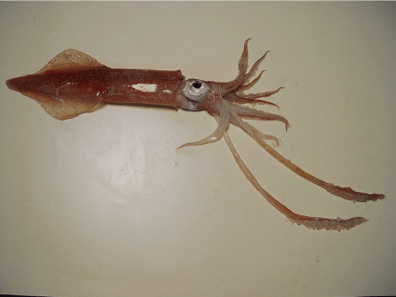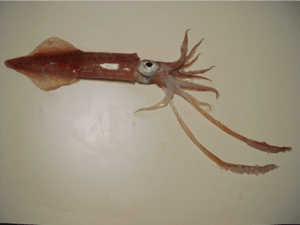Adaptation, the gradual modification of a specie’s features, is a fundamental part of evolution. There is plenty of evidence to support this slow, ongoing process that modifies the genetic makeup of species.
A new study published by Dr. Eli Eisenberg of Tel Aviv University, in collaboration with Dr. Joshua Rosenthal of the University of Puerto Rico, describes the first example of an animal editing its own genetic makeup to modify most its proteins. Specifically, the researchers explored RNA editing in the Doryteuthis pealeii squid (1).
According to Dr. Eisenberg, “by showing that the squid’s RNA-editing dramatically reshaped its entire proteome – the entire set of proteins expressed by a genome, cell, tissue, or organism at a certain time – we proved that an organism’s self-editing of mRNA is a critical evolutionary and adaptive force” (1). Indeed, the ability of an organism to change the proteins it produces enables it to make adjustments in response to its environment.
RNA is a copy of DNA that is translated into proteins, but RNA can actually be edited before being translation, resulting in different versions of proteins. The changing physiological appearance of squids and octopuses over time and across different habitats suggests that recoding may occur in these species.
For the study, the researchers extracted both DNA and RNA from the squid. Using DNA sequencing, the team compared DNA and RNA sequences; the sequences in which DNA and RNA did not match up were identified as “edited.” Dr. Eisenberg explained that “60 percent of the squid RNA transcripts were edited,” compared to the fruit fly, which “is thought to edit only 3% of its makeup.” (1)
Why squids edit their own RNA to such an extent is a pressing question. Researchers theorize that squids may have an extremely complex nervous system, allowing them to exhibit sophisticated behaviors not seen in other invertebrates. Squids may also edit RNA to cope with changing environmental stimuli.
Researchers hope to use this approach to identify recoding sites in other organisms and determine the prevalence of this phenomenon in the animal world.
Sources:
1. American Friends of Tel Aviv University (12 Feb 2015). Make like a squid and transform: Squid can recode their genetic make-up on-the-fly to adjust to their surroundings, study finds. ScienceDaily. Retrieved February 21, 2015 from www.sciencedaily.com/releases/2015/02/150212114327.htm


Leave a Reply